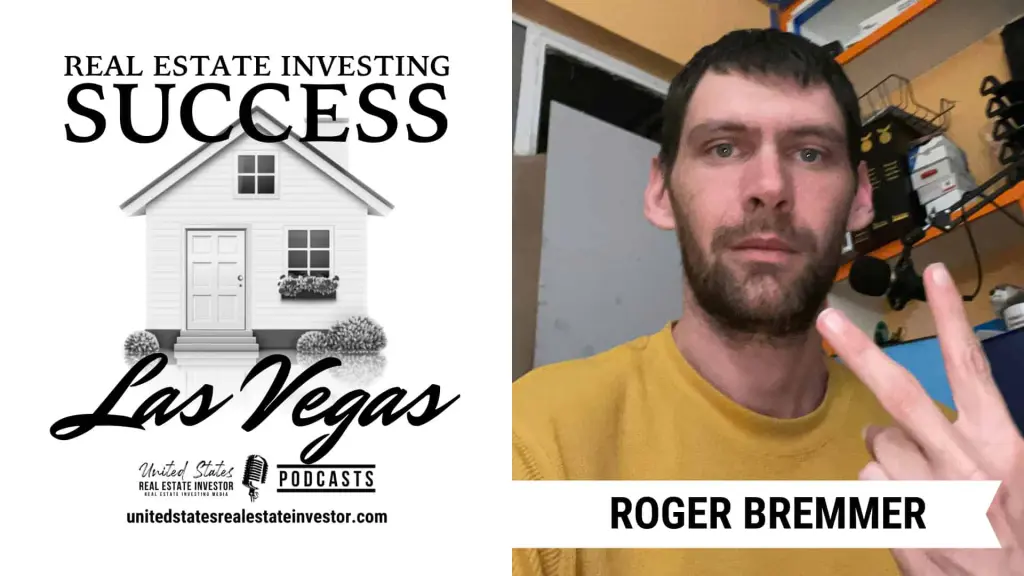Co-wholesaling: A Powerful Real Estate Investing Partnership: Introduction
In this article, we touch on the topic of co-wholesaling, which may be a great opportunity for you to find great deals, earn big profits, and build ongoing relationships.

What is real estate wholesaling?
Real estate wholesaling is a unique form of real estate investment that involves the quick purchase and sale of properties to make a profit.
In essence, the wholesaler acts as an intermediary between the buyer and seller, buying the property at a discounted rate and then selling it for more than their cost.
The wholesaler does not take title to the property but instead receives a fee for connecting buyers and sellers.
In the field of wholesale real estate, wholesalers are typically very experienced real estate investors who specialize in finding off-market deals with deep discounts.
They use various tactics to acquire these properties including networking with other industry professionals, direct mail campaigns, cold calling out-of-state owners, or attending local auctions.
Once they find a wholesale deal they are looking to flip, it’s a good idea to quickly get the property under contract, then find an end buyer who can close on the deal fast.
This new strategy enables each partner to take advantage of potential deals that an individual investor may not be able to handle on their own.
Real estate wholesaling is just one of the common methods of acquiring real estate. There are many other methods of buying property, such as fix and flip investing, rental property buying, lease option investing, and many other ways to get into the market.

What is real estate co-wholesaling?
Real estate co-wholesaling is a great real estate strategy for investors looking to increase their profits as a partnership.
It involves two or more real estate investors working together to purchase and/or sell a property. Each investor contributes funds, resources, and expertise in order to take advantage of larger deals that may be too expensive for one individual investor.
This type of collaboration allows the partners to reduce risk and leverage each other’s strengths, resulting in higher returns on investment than either partner could achieve alone.
The strategy is almost a merger of sorts, but it’s not. The two companies will continue to operate separately and continue to service their individual clients as usual.
However, once a deal is closed, the company will pool the assets together and share in the profits.
The key benefits of real estate investing partnerships include lower acquisition costs through pooling resources, improved access to lucrative wholesale deals that offer attractive profit margins, and the ability to diversify investments with minimal capital outlay.
The concept of co-wholesaling involves bringing together a group of investors who all want to wholesale a specific property.
Minimizing risk, each investor contributes their own resources, skillset, and expertise to the deal, and they share in the profits when the property is sold.
This can be a win-win for everyone involved, as it allows investors to leverage each other’s strengths and make more money in the process.

Finding Potential Co-wholesaling Partners
Finding the right partner for a co-wholesaling real estate venture is important to ensure success.
To begin, an investor should have a clear understanding of their own strengths, weaknesses, and goals.
This will help them identify the type of person they are looking for in a potential partner.
When searching for someone to co-wholesale with, it’s essential to do your due diligence. This means confirming credentials such as licensing and experience level, as well as researching their previous deals and any past successes or failures they’ve had in the real estate industry.
It can also be beneficial to speak directly with current or past partners to ask about their experience working together.
When investing with another person it’s important that you find someone who shares your vision and values so that you can work together effectively on future investments.
Building a successful real estate investment partnership requires finding the right person.
A great partner must share your vision and values when it comes to investing, as well as be able to bring something valuable to the table, such as capital or experience.
It is important to take the time to get to know someone before entering into an agreement with them—ask them about their investing history, how they prefer to invest and how they handle conflict resolution.
This can help you gauge if this person is someone who will be a good fit for you long term.
In addition, setting clear expectations upfront is key when working with somebody else on projects.
Establishing criteria that both of you agree upon in regard to timelines and responsibilities can prevent confusion later down the line and ensure that everyone involved understands their role in the investment process.

How To Form A Co-wholesaling Partnership
Forming a partnership can be a great way to tackle larger real estate projects and mitigate risk.
Many new real estate wholesalers are turning to partnerships to increase their portfolio size and take advantage of the added expertise that comes with it.
Before you start your search, there are some great questions you should be asking yourself: what kind of returns am I looking for, is this person the right fit, and how do our skills complement each other?
When forming any kind of partnership in real estate investing, it’s important that both parties communicate openly about their expectations.
This means discussing goals for the project before signing anything – what is each party’s role in closing deals? What percent of profit does each partner receive?
Who will take on marketing tasks or other operational duties? When these things are discussed upfront, investors can avoid legal issues further down the line.

Wholesaling Joint Venture
One of the key components of co-wholesaling is the joint venture agreement. This is a legal document that outlines the terms of the partnership, including how profits will be divided and what each investor’s responsibilities are.
It’s important to have a clear and detailed agreement in place before starting a co-wholesaling venture, as it will help prevent misunderstandings and disputes down the road.
It’s important to have a clear and detailed agreement in place before beginning your new real estate investing partnership.
When two or more parties enter into an agreement, they need to be on the same page regarding different options and procedures.
A written purchase contract should be used when both parties agree on what is being bought and sold, as well as any other contingencies that may come up throughout the transaction.
Additionally, a wholesale agreement should also be drawn up outlining the terms of how profits are divided between partners.
This will help both parties understand their rights and responsibilities within the partnership. It’s important to take time to review all agreements thoroughly in order to protect everyone involved.
By having a clear understanding of each partner’s role prior to undertaking any transactions, many potential issues can be avoided in advance.

First Steps Of The Deal
Depending on your partnership configuration, an example first step in this process could be for one partner to locate and negotiate the deal, while the second partner provides financing if needed.
The partners then split any profits made from flipping the property according to an agreed-upon percentage.
Co-wholesaling can provide more options when it comes to potentially making money on real estate deals than either party would have alone, which can be a great incentive for investors looking for new ways of generating income.

Finding Co-wholesaling Real Estate Deals
Another important aspect of co-wholesaling is finding good deals.
Whereas a quick Google search comes to the minds of many, this is where the expertise of each partner comes into play when locating a motivated seller.
Some investors may be skilled at finding motivated sellers, while others may be better at finding potential buyers.
By working together, the group can identify wholesale properties, even in a competitive market, that are ripe for flipping and negotiate a purchase price that works for everyone.
One popular way of finding off-market wholesale deals is by using the direct marketing strategy.
When using direct marketing to find wholesale deals, investors can quickly identify potential deals in their area to pursue.
Direct marketing includes tactics such as direct mailings, cold-calling, attending networking events, and posting ads online or in local newspapers.
By targeting owners of distressed properties in areas that match their criteria for a good deal, investors can often get exclusive access to these properties before they are released onto the market.
Additionally, by connecting with motivated sellers directly via phone calls or emails rather than just relying on the MLS listings, investors may be able to get better prices and terms on deals they find.
Direct marketing also provides an avenue for experienced real estate wholesalers to team up with newbies or inexperienced partners who need help getting started with their investment journey.
When in a co-wholesaling partnership, investors are able to leverage the power of collective knowledge and resources to identify specific properties that offer the best opportunities.
One common practice is posting “bandit signs” in neighborhoods where they think there may be good wholesaling opportunities.
This strategy can be especially effective in competitive markets with higher property values where it’s difficult for investors to find deals on their own.

Once potential properties have been identified, the group can work together on negotiating fair terms with sellers.
Having multiple people involved in negotiations can signal strength and security to sellers who may not want to accept offers from individual investors due to perceived risk.
The next step is to find an end buyer who is willing to pay a higher price for the property than the seller agreed price.
This is where real estate agents and other professionals can come in handy. Real estate investors should always have at least one ongoing relationship with a real estate agent because their real estate license gives them legal access to systems, lists, and contacts that most investors just do not have.
They can help market the property and connect the investors with potential buyers. In some cases, the investors may even have their own database of buyers who are interested in purchasing properties in the area.
Once a buyer has been found, the co-wholesaling group can use a variety of different methods to complete the purchase.
One common method is to use an assignment contract. This is a legal agreement that allows the investors to transfer their rights to the property to the end buyer.
The title company will handle the closing, and the end buyer will pay the higher purchase price, minus the wholesale fee that the investors have agreed to.

Wholesaling Deal Acquisition
One method for acquiring wholesaling deals is through loans from hard money or private lenders.
These kinds of loans provide quick access to capital and allow investors to close deals quickly before anyone else has the chance.
They also require less paperwork than traditional bank financing, which can help speed up the process even further.
Another option is partnering with other real estate investors who may have access to off-market properties or better knowledge of local markets; this type of collaboration can be extremely beneficial in helping both parties close more profitable deals over time.

How To Find Buyers Of Your Wholesale Property
Finding buyers for your wholesale property is an essential part of successful real estate investing.
To build a buyers list (a cash buyers list is best), a collaboration of investors is key. Start by networking with other experienced investors in the local market who have access to cash or large lines of credit.
This will help you to identify potential buyers and establish mutually beneficial relationships.
In addition, it’s important to stay informed about the trends in the local real estate market so that you can target qualified buyers with attractive offers.
Leverage online resources such as websites and social media platforms to connect with potential buyers, advertise your properties, and build your investor lists.
Finally, once a buyer has been identified, make sure that you are aware of all relevant regulations pertaining to the purchase process so that everything runs smoothly from start to finish.
With platforms such as Facebook utilizing its group functionality, social media marketing has become a much more useful, next level way to connect with other active investors.
Some people say it is the secret sauce that gives you easy access to selling wholesale deals fast.

Negotiating Real Estate Co-wholesaling Partnership Contracts
Real estate wholesaling contracts are an important part of any co-wholesaling partnership.
When a real estate investor and a partner agree to work together, it is essential for both parties to negotiate a good contract that outlines all financial terms, responsibilities, and risks associated with the deal.
The key components of a wholesaling contract are the purchase price and the amount of money the investor will receive from their partner in exchange for taking on much of the work involved in closing the deal.
The purchase price should be reasonable compared to market value and agreed upon by both partners before proceeding with negotiations.
Additionally, depending on how much work each party will do, investors should also consider what percentage of profits they will receive as compensation for their efforts.
Negotiating an equitable split can ensure that both partners benefit financially from their agreement.

Negotiating Real Estate Wholesaling Contracts With The Buyer
When negotiating real estate wholesaling contracts with a buyer, it is important to remember that you are working together in order to reach an agreement.
The goal should always be for both parties to walk away satisfied with the deal. A good number for both the seller’s and investor’s price should be established prior to negotiations.
This will provide a starting point that can then be negotiated until an appropriate balance is found between the two sides.
It is important to keep in mind that real estate investors occasionally have different goals than sellers or wholesalers; so, while it is key to remember your partner’s financial interests, it is equally important to make sure that you are able to realize your own objectives as well.
Building trust and having open communication throughout the negotiation process will help ensure a successful outcome for all involved.
It may also be beneficial to seek out professional advice when dealing with complex legal matters or difficult negotiations.
Another good opportunity you may have if the deal does not close with the current buyer is that there may be another interested investor on that particular buyer’s list.

How To Close A Co-wholesaling Deal
When it comes to closing a co-wholesaling deal, the fastest way is to use back closings. This method works best when the two parties involved are in different geographical areas.
Back closings allow both partners to focus on their respective tasks without having to travel or attend closing appointments. The seller can sign all necessary paperwork upfront, and then send it via mail or e-mail to the buyer for review and signature.
This eliminates the need for a lengthy negotiation process and helps facilitate a quicker closing process with less work for everyone involved.
In addition, this allows each of the partners to complete their due diligence prior to signing any contracts; something which would be impossible if they were both physically present at a closing appointment.
Back closings make it easier than ever before to close co-wholesaling deals quickly and efficiently without running into any roadblocks along the way.
Double Closing Strategy
Another method that is often used in co-wholesaling is double closing. This involves two separate closings – one between the investors and the seller, and another between the investors and the end buyer.
The investors will purchase the property from the seller at a lower price, and then turn around and sell it to the end buyer for a higher price.
This can be a bit more complicated and expensive, but it can also be a great way to keep more anonymity on assignment fee numbers and to make a quick profit.

Good Real Estate Investing Strategy For Newbies
One of the benefits of co-wholesaling is that it allows new investors to get their feet wet in the real estate industry without having to invest a lot of their own money.
By partnering with more experienced investors, new wholesalers can learn the ropes and gain valuable experience without having to risk their own capital.
This can be a great way to build a solid foundation for a successful wholesaling business.

Double-Barrelled Approach To Investing
Another advantage of co-wholesaling is that it allows investors to share the workload. Finding good deals and closing them can be a lot of work, and by partnering with other investors, the workload can be spread out more evenly.
This can make the process more efficient and allow each partner to focus on their strengths.

Real Estate Relationships
One of the best things about co-wholesaling is that it allows investors to build ongoing relationships with other investors.
By partnering on multiple deals, investors can develop strong relationships with their partners and learn from each other’s experiences.
This can be a great way to grow a successful real estate wholesaling business.

Co-wholesaling Legal Considerations
Before engaging in a real estate co-wholesaling partnership, it is important to have a clear understanding of the legal considerations involved.
Real estate laws and regulations vary from state to state, so be sure to do your research before entering into any agreement.
To protect both partners’ rights and interests, the best contract for such an arrangement should be drafted by a real estate attorney with experience in such deals.
A well-crafted contract should include equitable rights for each partner. This means that each party will receive their fair share of profits according to the percentage stated in the agreement as well as any other obligations that may have been agreed upon.
Additionally, any liabilities or losses incurred during the transaction must also be included in the contract and equally divided among partners.
This is especially important when working with multiple investors, who may or may not know one another personally.

Conclusion
Real estate co-wholesaling can be one of the hottest investment trends. It allows two parties to join forces and pool their resources to make a much larger profit than they otherwise could on their own.
It cannot be stressed enough that the most important thing to remember when considering entering into a real estate investing partnership is making sure that all expectations are clearly communicated between both parties.
With the right attitude and knowledge, co-wholesaling can be a powerful tool in any investor’s arsenal, especially when it comes to taking advantage of the latest real estate opportunities.
The potential for returns is only limited by your creativity and ambition as an investor, so don’t miss out on the opportunity to partner up with another investor or team who shares your vision.
No related posts.




























